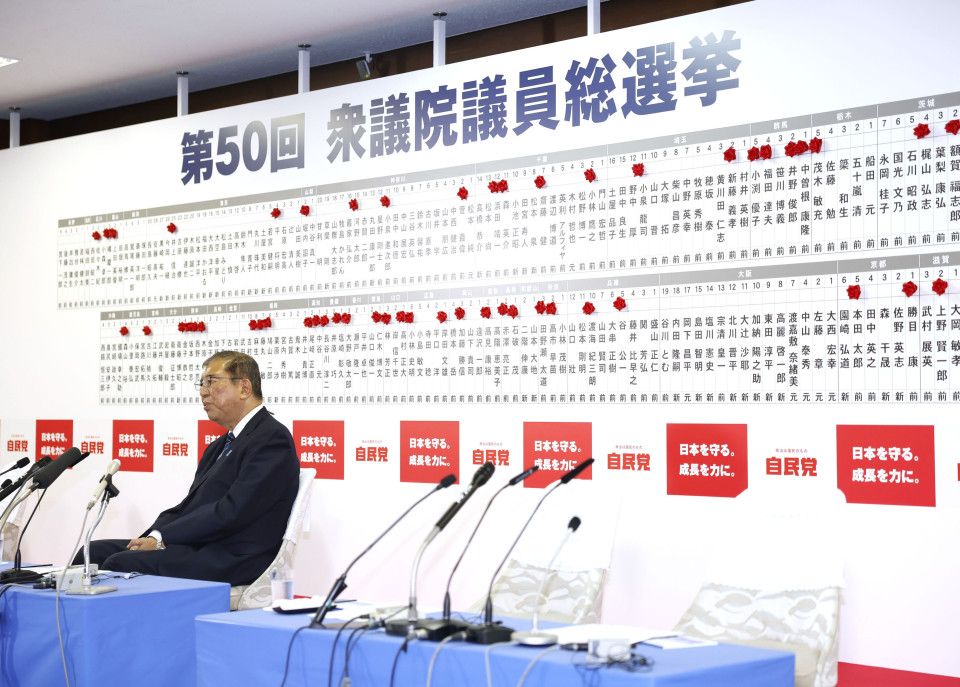
Japan’s Prime Minister Shigeru Ishiba ruled out the idea of expanding the composition of the ruling coalition after Sunday’s election defeat, in which his Liberal Democratic Party (LDP) lost its majority in the House of Representatives. Instead, Ishiba expressed his intention to adopt some of the opposition’s proposals to avoid a political deadlock, after an election day in which the party suffered a significant setback.
The unexpected fall of the ruling bloc, which lost 73 seats and was left with 215 of the 465 seats in the Lower House, has created a leadership crisis in the LDP. The main opposition, the Constitutional Democratic Party of Japan (CDPJ), increased its presence in parliament, going from 98 to 148 seats. This has increased expectations of possible one-off political agreements between the LDP and the Democratic Party for the People (DPP), an opposition faction that experienced notable growth in voting.
At a press conference from LDP headquarters in Tokyo, Ishiba called the result “harsh” and acknowledged that the loss of voter confidence was largely attributable to a political funds scandal that has rocked his party in recent years. months. “We were unable to adequately address people’s mistrust and anger over the underreporting of political funds and the misuse of resources,” he declared. The seriousness of the case is evident, as a Kyodo News exit poll indicated that 74% of voters considered the scandal when casting their ballot.
The LDP has been the subject of an intense public investigation since it was discovered that some sectors of the party, particularly the faction once led by former Prime Minister Shinzo Abe, had not reported full income from fundraising events, accumulating resources irregularly for years. The defeat led Shinjiro Koizumi, the LDP’s head of electoral strategy, to resign from his position, and Hideki Makihara, Minister of Justice, to express his intention to resign after losing his seat.
The Japanese ruling bloc loses its majority in the Lower House, an alarm signal for the Prime Minister
With the parliamentary landscape changed, Ishiba’s government must convene a special session of the Diet on November 11, to elect the prime minister. As the ruling coalition tries to muster enough support to keep Ishiba in office, the LDP faces strengthened opposition. CDPJ leaders, led by Yoshihiko Noda, have sought coalitions with other parties to promote a transformation in the government.
Pressure also comes from the labor side, with Rengo, Japan’s largest union confederation, which has held meetings with opposition party leaders to debate the way forward. Yuichiro Tamaki, leader of the DPP, assured Rengo leader Tomoko Yoshino that his party does not plan to join the LDP-Komeito coalition, although he expressed willingness to coordinate specific policies with the LDP and CDPJ.
Faced with an uncertain future, Ishiba faces the challenge of retaining government leadership, seeking cohesion in the LDP and overcoming the impact of the financial scandal. While he has promised to adopt opposition proposals and reform his party to restore public trust, the balance of power in Japan has changed, and the prime minister will need to make strategic decisions to avoid political paralysis and ensure stability at a crucial time for the country. country.

Source: https://reporteasia.com/politica/2024/10/28/japon-crisis-politica-derrota-ldp-alianzas/

